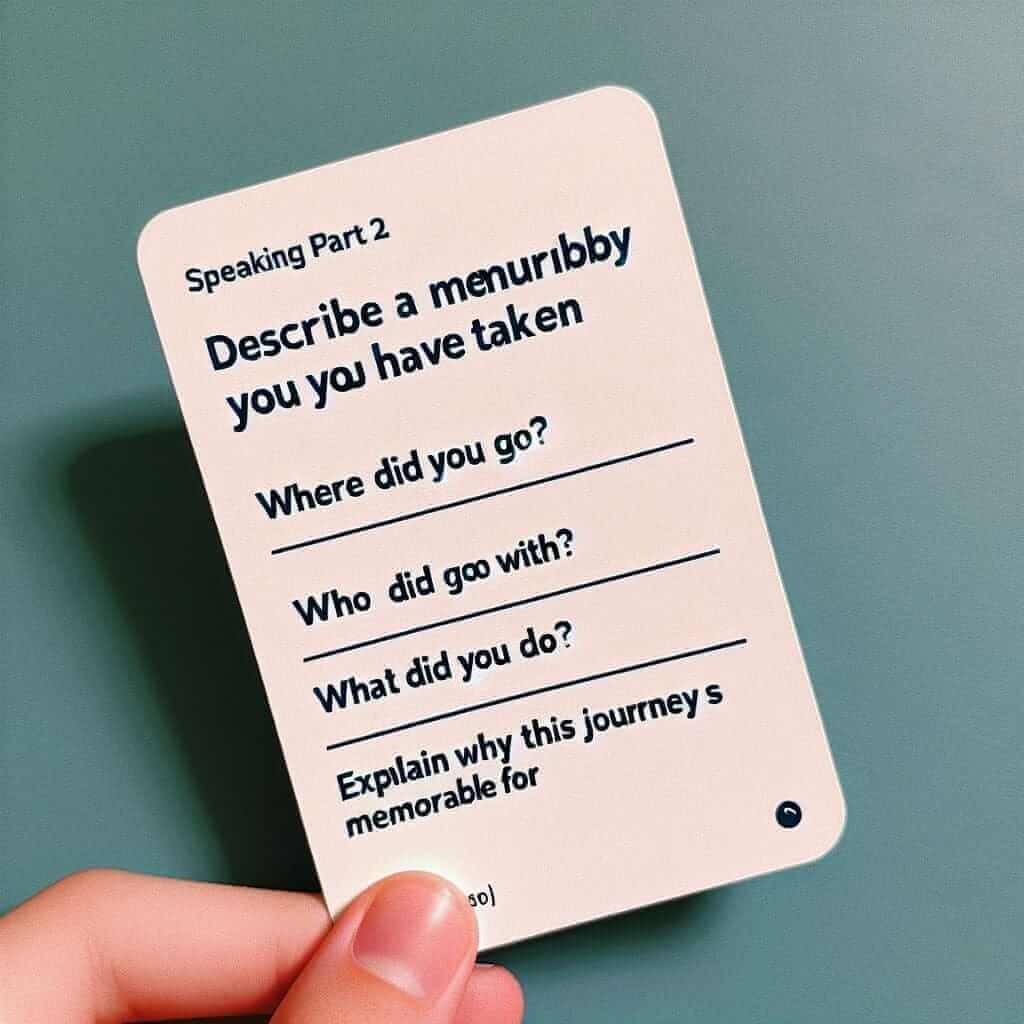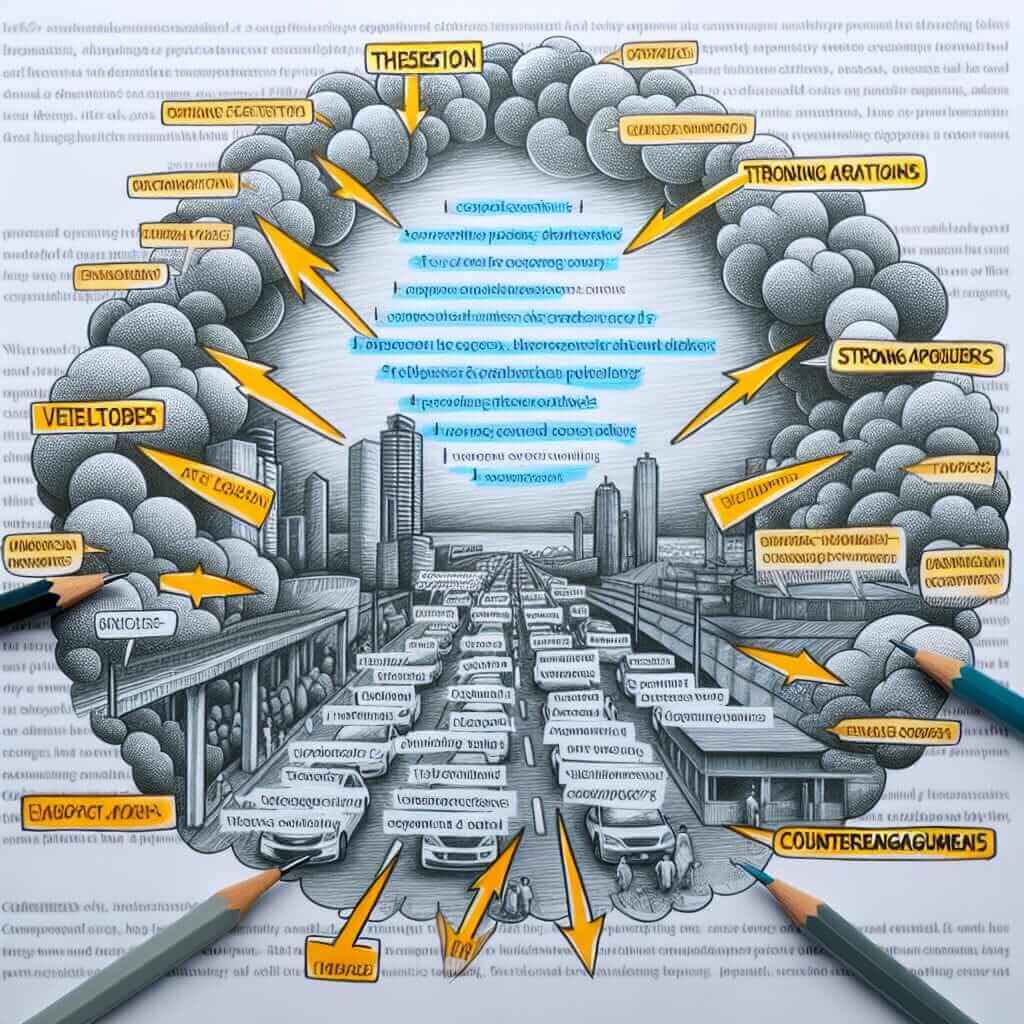The IELTS Speaking test can be nerve-wracking, especially when it comes to Part 2, where you have to speak solo for an extended period. Understanding the time limit for this part is crucial for effective preparation. This article will delve into the IELTS Speaking Part 2 duration, provide helpful tips, and illustrate how to make the most of your allotted time.
Nội dung bài viết
IELTS Speaking Part 2: The Long Turn
Part 2 of the IELTS Speaking test is designed to assess your ability to speak fluently and coherently on a given topic. You will be given a cue card with a specific topic and some prompts to guide your talk.
How Long is the IELTS Speaking Part 2?
You will have one minute to prepare your response and then need to speak for one to two minutes. The examiner will notify you when one minute has passed for preparation and when you have spoken for two minutes.
 IELTS Speaking Part 2 Cue Card
IELTS Speaking Part 2 Cue Card
Making Every Second Count
Here’s a breakdown of how to utilize your time effectively:
Preparation Time (1 minute):
- Analyze the Cue Card: Quickly understand the topic, the points you need to cover, and any specific vocabulary you might want to use.
- Structure Your Response: Jot down keywords or a simple structure to organize your thoughts. Don’t write complete sentences.
- Think of Examples: Personal anecdotes, hypothetical situations, or facts can make your response engaging and demonstrate your language range.
Speaking Time (1-2 minutes):
- Introduction (15-20 seconds): Start by paraphrasing the topic and stating your main point. This provides a clear framework for your response.
- Example: “The cue card asks me to describe a memorable journey I took. I’d like to talk about the time I travelled solo through Southeast Asia…”
- Body (1 minute – 1 minute 30 seconds): Elaborate on the prompts provided. Use your notes and examples to provide a detailed and coherent response.
- Example: “One of the most memorable aspects of the journey was the people I met. For example, in Vietnam, I stayed with a local family who taught me how to cook traditional dishes….”
- Conclusion (15-20 seconds): Briefly summarize your points and offer a concluding thought or feeling about the topic.
- Example: “Overall, this journey taught me valuable life lessons about independence and cultural understanding. I’ll cherish the memories forever.”
Common Mistakes to Avoid:
- Going Off-Topic: Ensure your response directly addresses the prompts on the cue card.
- Memorizing Answers: Examiners can easily spot memorized responses. Speak naturally and focus on communication.
- Panicking When the Examiner Stops You: It’s okay if the examiner stops you at the two-minute mark. It doesn’t affect your score.
Tips for Effective Practice:
- Use Practice Cue Cards: Familiarize yourself with the format and practice speaking within the time limit. Numerous resources online provide sample IELTS Speaking cue cards.
- Record Yourself: Listening to your recordings helps identify areas for improvement in fluency, pronunciation, and grammar.
- Get Feedback: Ask a teacher or a fluent English speaker to evaluate your responses and provide constructive criticism.
Conclusion:
By understanding the time constraints and employing effective preparation and speaking strategies, you can confidently tackle the IELTS Speaking Part 2. Remember to practice regularly, focus on communicating clearly, and showcase your language abilities to achieve your desired IELTS score. Good luck!


